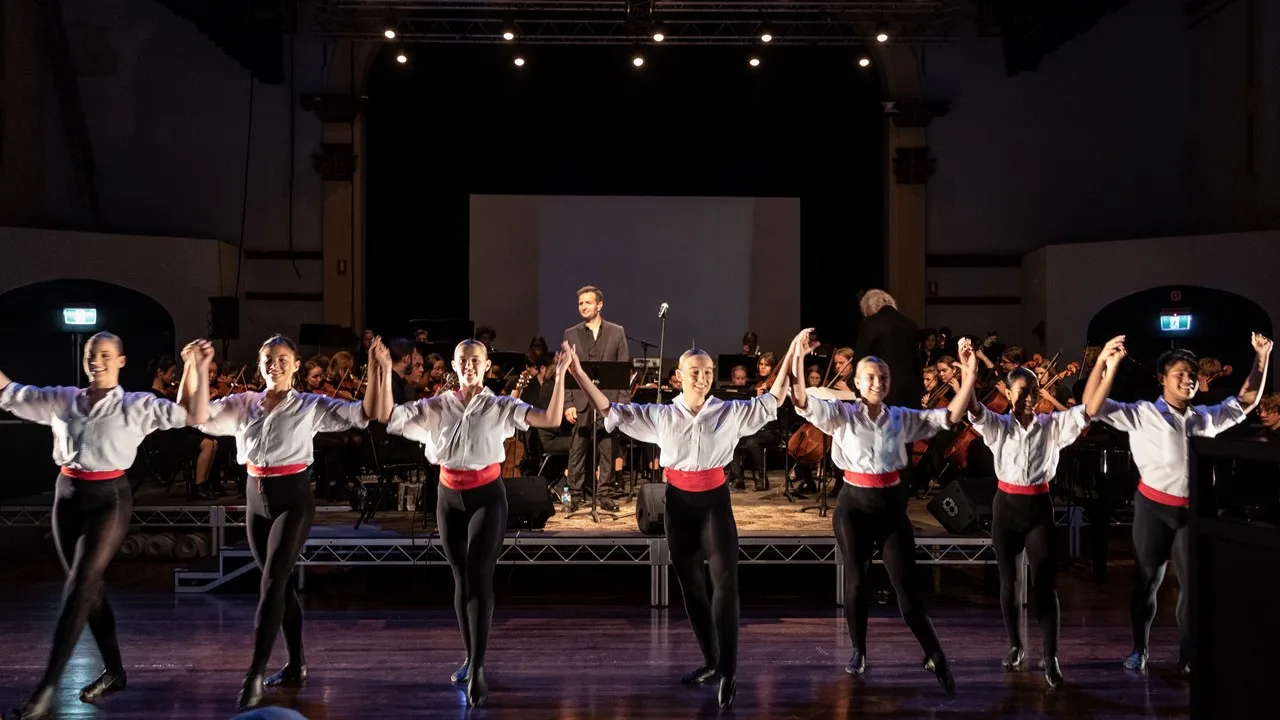Kinky Friedman is a singer, songwriter, humorist, and sometimes politician who with his band Texas Jewboys has developed a cult following among alt-country fans with songs like “They Don’t Make Jews Like Jesus Anymore.” followers. He is 79 years old.
Author Larry Sloman, a close friend, said the cause of death was complications from Parkinson’s disease.
Mr. Friedman occupies a unique position on the fringes of American pop culture, along with such artists as Jello Biafra, the Dead Milkmen and Mojo Nixon. He looked back at the mainstream with songs that blended vaudeville, outlaw country and gibberish, a novel style of sleazy music with songs like “Bastards from El Paso” and “We Reserve the Right to Deny Service to You.” to represent.
Sporting a bushy mustache, sideburns, a Honduran cigar and a wide-brimmed cowboy hat, he played his own version of Texas country music, taking liberties with Jewish culture, American politics and various sacred ideals, including feminism. The National Organization for Women once awarded him the Macho Pig Award.
Behind the jokes, he has a deep musical talent. He sang with a clear, deep voice and a soft tone, and his guitar playing borrowed the simple, direct style of one of his idols, Ernest Tubb.
He toured extensively in the 1970s, both with band and solo, including a second leg of Bob Dylan’s Rolling Thunder revue in 1976. Ole Opry Performances – Mr. Friedman claims to be the first person to perform on “Saturday Night Live” and the Grand Ole Opry. ·Lowinger, has surpassed him).
Another performance taped for the TV show “Austin City Limits” was reportedly so profane that it was never aired.
After the band broke up in the 1980s, Mr. Friedman turned to writing detective novels, and he appeared in “Kill Two Birds and Get Stoned” (2001) and “God Bless John.” The same casual irreverence is used in books like God Bless John Wayne.
He also let his weirdo flag fly by writing a column for Texas Monthly magazine in the 2000s, writing about rural Texas politics, music and life.
Yet behind his eccentricity lies a surprising seriousness. Mr. Friedman established a ranch for rescue animals. He and his sister, Marcie, run Echo Hill Camp, which they inherited from their parents, and offer it free to the children of parents who lost their lives while serving in the U.S. Army.
“Kinkster is a character,” Mr. Sloman said. “Richard was one of the most sensitive and warm-hearted people in the world.”
While many thought his 2006 independent run for Texas governor was a joke, he insists he was serious — and given the recent successes of Jesse Ventura and Arnold Schwarzenegger, why not Woolen cloth?
He campaigned on a platform calling for drug decriminalization, an end to the smoking ban and a pledge to lower the speed limit from 55 mph to 54.95 mph. But he also called for higher teacher pay and a crackdown on illegal immigration. He came in fourth with 12% of the vote; Republican incumbent Rick Perry won re-election.
Still, it’s hard to know when Mr. Friedman is joking and when he’s serious — which, in his mind, is the point. A song like “Ride ’em Jewboy,” with its hilarious and offensive title, is actually a sad allegory about the Holocaust.
“They No Longer Make Jews Like Jesus” is about anti-Semitism, while “The Ballad of Charles Whitman” is ostensibly about the gunman who killed 16 people in Austin in 1966, a vitriolic expose of Texas Man’s love for all things big and outrageous. (“The Chancellor yelled: ‘This is puberty/Of course it’s the most unpleasant/But I must admit it’s a lovely way to do it.'”)
But he’s not just kidding, and other songs are less subtle. Published in 1973, at the height of the women’s movement, “Put Your Cookies in the Oven, Put Your Buns in the Bed” mocked feminism and was condemned by women’s groups. At a concert in Buffalo that year, Mr. Friedman said, a group of “grumpy lesbians” stormed the stage.
Reassuringly, his greatest target is often himself.
In 1995, he told The New York Times: “With a name like Kinky, you should be famous or else be socially embarrassed.”
Richard Samet Friedman was born in Chicago on November 1, 1944, to Thomas Friedman, a psychologist, and Minnie Minnie (Samet) Friedman is a speech therapist. Shortly after his birth, the family moved to the Texas Hill Country west of Austin, where his parents founded and operated Echo Mountain Ranch. His father also teaches at the University of Texas.
As a child, Richard worked at camp, played chess, and grew into his cowboy persona, although he proudly embraced his Judaism; at age 9, he refused to enter the school’s Christmas pageant.
He began playing music in high school with his friend and co-religionist Jeff Shelby, who later went by the name Giuffor Jr. Western swing, a lopsided mixture of country, polka and jazz, was in its heyday, modeled on the genre’s eccentric geniuses like Milton Brown and Bob Wills.
“I’m the love child of twin cultures, cowboys and Jews who seem to have a lot in common,” Mr. Friedman told The Aspen Times in 2006.
He never married. He is survived by his brother Roger and sister Marcy Friedman.
Mr. Friedman was studying psychology at the University of Texas, where a friend saw his permanently frizzy hair and nicknamed him “Kinky.” After graduating in 1966, he served in the Peace Corps in Borneo for two years before returning to Texas to continue his music career.
His first band, King Arthur and the Carrot, played songs that imitated surf rock. Its only single, “Schwinn 24,” told the story of a boy and his bicycle, parodying the Beach Boys’ song about cars and girls. In 1973, he formed Kinky Friedman and the Texas Jewboys with Little Jewford and other musicians with quirky stage names such as Wichita Culpepper and Sky Cap Adams.
The group was part of the rise of country rock bands, alongside the likes of Gram Parsons, The Eagles and The Band. After releasing two critically acclaimed albums, “Sold American” (1973) and “Kinky Friedman” (1974), they found themselves in demand as an opener for such stars as Mr. Dylan and Willie Nelson Performance.
Mr. Friedman had a cheerful, warm-hearted personality and made friends easily, including Mr. Nielsen, the chess player, and Don Imus, the radio host who made him a regular guest on his show. But he also found himself enjoying life too much: “There is a fine line between fiction and nonfiction,” he wrote in 2004, “which I believe Jimmy Buffett and I scoffed at in 1976.”
After the Texas Jewish Boys broke up in 1979, he moved to New York, playing small solo gigs in clubs and coffeehouses near his home in Greenwich Village.
In 1984, while walking down the street looking for cigars, he saw a man beating a woman. He pulled them apart and waited for the police to arrive.
He later learned the woman was Cathy Smith, who was indicted in 1983 for injecting comedian John Belushi with a fatal dose of heroin and cocaine.
In 1993, he told Texas Monthly: “She must be among the 12 million people in this city.”
Mr. Friedman returned to Texas in 1986, in part to stay sober. He lives at Echo Mountain Ranch and does camp laundry in lieu of rent. He ran for Justice of the Peace in nearby Kerrville, but lost after a newspaper revealed that he had allowed 1960s activist Abby Hoffman to stay at the camp.
Ms. Smith’s incident inspired his second career as a writer. Working out of a dark green trailer at the camp with only a cat and a pet armadillo for company, he wrote 18 books, including novels and essays.
Most of his novels, beginning with the 1986 novel Greenwich Hours, have been more absurdist accounts of his own life, centered around a private detective from Texas, also known as Kinky Friedman, who solves strange crimes across New York.
Other titles with equally ridiculous names include “Elvis, Jesus, and Coca-Cola” and “The Love Song of J. Edgar Hoover.” His books sold quickly in both the United States and Europe, eventually selling more than six million copies.
In 2004, Mr. Friedman stood in front of the Alamo in downtown San Antonio to announce his candidacy for governor. Early chants — “My governor is a Jewish cowboy,” “How hard can it be?” — seemed to hint at unserious intent.
But with the support of other Texas music luminaries such as Mr. Nelson and Lyle Lovett, his campaign quickly became successful.
“We’ve gotten to the point where Texans are taking this issue more seriously than I am,” he told The Aspen Times. “I didn’t expect it to happen so soon.”
He was ill-prepared, especially in debates with Perry and other candidates. But his basic outsider appeal won over thousands of voters.
“The hopes of Texans are pinned on this – cowboys, teachers, college students. Everybody,” he said. “I think the soul of Texas is in this campaign.”
After the campaign, Mr. Friedman returned to his Texas Monthly column and continued writing it until 2010. .
He also returned to music, playing solo or with his old friends in the Texas Jewish Boys. His final album, The Poet of Motel 6, will be released this year.
He also spent more and more time on the ranch. Camp Echo Mountain closed in 2013, but three years ago he and his sister restored it, this time focusing on helping children of fallen service members and refugee families from Afghanistan.
“One of the volunteers fixed the water heater, and I went over to thank him,” he told Texas Highways in 2023. I did it for Jesus. I told him, ‘I’m doing this for Moses.




